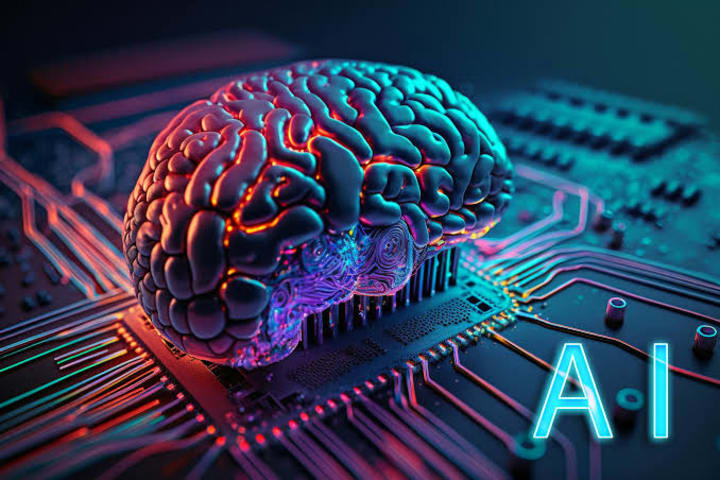

Exploring the realm of artificial intelligence (AI) would be another fascinating topic for a blog. Here's a brief outline to cover the AI world:
1. **Introduction to Artificial Intelligence (AI)**
- Define AI and its significance in the modern world.
- Historical overview of AI development.
- Different branches of AI: machine learning, deep learning, natural language processing, etc.
2. **AI Technologies and Applications**
- Machine Learning: Algorithms, models, supervised vs. unsupervised learning.
- Deep Learning: Neural networks, convolutional neural networks (CNNs), recurrent neural networks (RNNs).
- Natural Language Processing (NLP): Text analysis, sentiment analysis, language generation.
- Computer Vision: Image recognition, object detection, autonomous vehicles.
- Robotics: AI-driven automation, industrial robots, social robots.
3. **Impact of AI on Various Industries**
- Healthcare: Diagnosis, treatment optimization, personalized medicine.
- Finance: Fraud detection, algorithmic trading, risk assessment.
- Retail: Customer experience, demand forecasting, supply chain optimization.
- Transportation: Autonomous vehicles, traffic management, logistics.
- Education: Adaptive learning, personalized tutoring, administrative tasks automation.
4. **Ethical and Societal Implications of AI**
- Bias and Fairness: Addressing algorithmic bias, fairness in AI systems.
- Privacy and Security: Data protection, surveillance concerns, cybersecurity.
- Employment and Workforce Changes: Automation's impact on jobs, reskilling initiatives.
- Ethical AI Development: Responsible AI practices, AI ethics frameworks.
5. **Challenges and Limitations of AI**
- Technical Challenges: Data quality, interpretability, scalability.
- Ethical Challenges: Privacy violations, algorithmic discrimination.
- Regulatory Challenges: Legal frameworks, ethical guidelines, international cooperation.
6. **Future Trends and Innovations in AI**
- Explain recent advancements and breakthroughs in AI research.
- Discuss potential future applications and transformative impacts.
- Predictions for the evolution of AI technology and its societal implications.
7. **Case Studies and Success Stories**
- Highlight real-world examples of successful AI implementations across various industries.
- Interviews with AI experts, researchers, and practitioners sharing their insights.
8. **Conclusion**
- Summarize key points discussed in the blog.
- Reflect on the transformative potential and ethical considerations of AI.
- Encourage further exploration and discussion on the topic.
This outline provides a comprehensive overview of the AI world, covering its technologies, applications, impact, challenges, future trends, and ethical considerations.
The future of AI holds immense potential for transformative innovations across various domains. Here are some key trends and inventions shaping the future of AI:
1. **Advancements in Deep Learning:** Continued research and development in deep learning algorithms and architectures will lead to more sophisticated AI models capable of handling complex tasks with higher accuracy and efficiency.
2. **AI in Healthcare:** AI-driven diagnostic tools, personalized treatment recommendations, drug discovery, and remote patient monitoring will revolutionize healthcare delivery, improving patient outcomes and reducing costs.
3. **Autonomous Vehicles:** Self-driving cars and other autonomous vehicles will become more prevalent, offering safer and more efficient transportation solutions while reshaping urban mobility and logistics.
4. **Natural Language Processing (NLP):** AI-powered language models will enable more natural human-computer interactions, facilitating better chatbots, virtual assistants, and automated translation services.
5. **AI for Climate Change and Sustainability:** AI technologies will play a crucial role in monitoring and mitigating the impacts of climate change, optimizing energy usage, managing natural resources, and advancing sustainable development efforts.
6. **Robotics and Automation:** Robotics and automation will continue to transform industries such as manufacturing, agriculture, and warehousing, enhancing productivity, safety, and efficiency.
7. **Explainable AI (XAI):** Efforts to develop transparent and interpretable AI systems will increase, allowing users to understand and trust AI decisions while addressing concerns about algorithmic bias and fairness.
8. **Edge AI and IoT Integration:** AI algorithms will increasingly run on edge devices and integrate with the Internet of Things (IoT), enabling real-time data analysis, predictive maintenance, and smarter IoT applications.
9. **AI Ethics and Governance:** There will be greater emphasis on ethical AI development, including the establishment of regulatory frameworks, industry standards, and best practices to ensure responsible AI deployment and mitigate potential risks.
10. **Human-AI Collaboration:** AI technologies will augment human capabilities rather than replace them, leading to new forms of collaboration between humans and machines in various fields, including creative endeavors, scientific research, and decision-making processes.
These trends indicate a future where AI technologies continue to advance, empowering individuals, businesses, and societies to solve complex challenges and unlock new opportunities for innovation and growth.
About the Creator
ammar
blogger






Comments
There are no comments for this story
Be the first to respond and start the conversation.